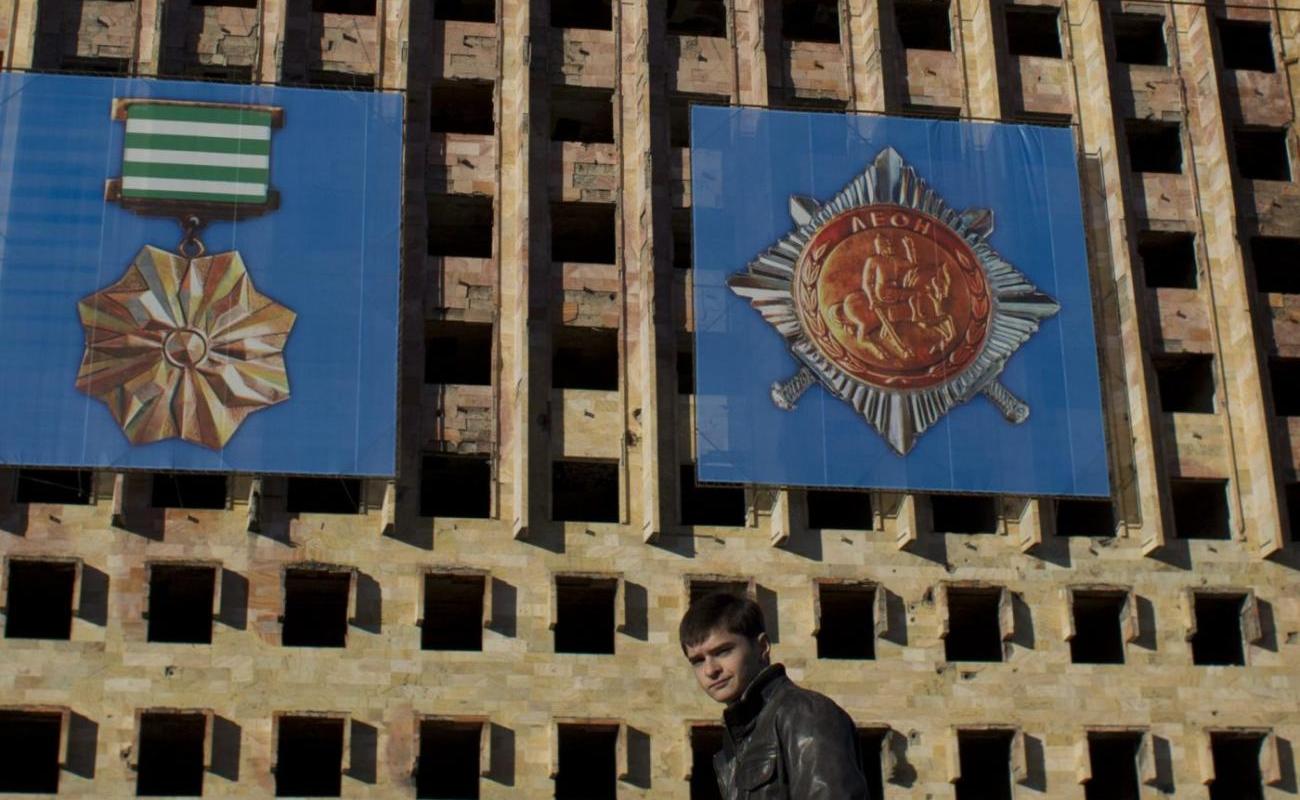It’s Not All Laughs as a Russian Colony

Ever since Russia illegally pushed Georgia out and built an Abkhazian puppet state, with its sunny Black Sea coasts and tourist-heavy economy, the Kremlin has been boss.
Now, the heavily dependent government of the separatist Republic of Abkhazia is being taught a lesson in realpolitik by its masters in Moscow. Local rulers of the supposedly independent state behaved as an independent state can — following recent mass protests, its parliament dropped the so-called Apartment Law, which lifted the ban on foreigners buying land and property in Abkhazia.
Since no international investment enters Abkhazia because the territory is considered illegally occupied by almost all United Nations members, the only source for the expected financial influx would have been Russia. But on July 25, the enabling bill was abandoned.
This is not how empires work. A few weeks later on September 3, the region’s separatist leaders said that their patrons in Moscow had ordered the immediate suspension of social funding for Abkhazia, something that will affect all sectors of society from health to schools. Abkhazia has traditionally relied almost exclusively on financial aid from Moscow and only to a minor extent on revenues from tourism, where Russian tourists anyway constitute an absolute majority of visitors. It is hopelessly dependent.
Abkhazians feared the new legislation would destroy the last vestiges of their perceived independence and also feared that wealthy Georgians living in Russia and holding citizenship of this country would buy plots and real estate in Abkhazia. Given the animosity Abkhazians hold against Georgians, the law is seen as anathema.
Just before the suspension of Russian aid, a secret document entitled the “Protocol of the meeting between Dmitry Kozak, Deputy Head of the Russian Presidential Administration, and Aslan Bzhania, President of Abkhazia” popped up on social media on August 29. The agreement required the Abkhaz side, its de-facto leader to be precise, to resurrect the bill and provide the names of the politicians opposing the legislation.
Although the authenticity of the document has not been proven, few question its veracity. Russia has ratcheted up the pressure on the region. Hints in the media also indicate that it plans other sanctions if the bill is not passed in the near future. Indeed, Abkhaz politicians have already confirmed that Russia also intends to charge for electricity supplies at the commercial rate. These are currently subsidized by Moscow.
There were other bricks in the wind. Russia stayed silent on August 26, when it traditionally sends a congratulatory message on the so-called “Day of International Recognition” of Abkhazia (the statelet is recognized by five countries.) An intergovernmental commission was canceled in late August.
This is not the first time that Russia has pressured Abkhazia for concessions. In late 2023, after months of intense political wrangling, the region’s separatist rulers handed over the Bichvinta sea resort. Famous as a place where Soviet leaders spent their summers, the territory is now leased to Russian authorities for 49 years. Yet the buildings have already been transferred to Russian ownership.
It may not be coincidental that this upheaval comes as relations between Georgia and Russia improve. Since 2022, when Moscow launched its full-scale war on Ukraine, Tbilisi has chosen a pragmatic foreign policy toward Russia, which involved abstaining from joining the sanctions regime imposed on Moscow as well as trying to tap into the Russian market. It has also passed what opponents call the Russia Law, which they and Western nations see as troublingly anti-democratic legislation modeled on Russia’s repressive example.
This warming in relations is seen by the separatist Abkhaz authorities as deeply worrying.
Their fear is that they may be used as a bargaining chip in some grand bargain to settle relations between the Kremlin and an illiberal Georgia. in return for a turn away from the West. Russia’s interests in the South Caucasus are historic but also profoundly pragmatic.
Georgia, along with Azerbaijan, forms the nucleus of the region and is a critical part of the Middle Corridor spanning the territory from Central Asia to the western shore of the Black Sea. In fact, Putin’s recent visit to Azerbaijan and the rather warm commentary from the Kremlin toward the Georgian government do indeed suggest a regional repositioning. Armenia, now isolated and defeated by its Azeri neighbor in war, remains alone in openly questioning Russia’s power.
Tbilisi is now rife with rumors that the Georgian government could be in talks with Russia over the potential return of the occupied territories (including South Ossetia, which is even more dependent on Russian subventions) and that Moscow seems more open to such a scenario. This would have nothing to do with affection for Georgia of course, but would represent a pragmatic trade-off.
These rumors of territorial re-integration may also be part of Georgia’s election campaign. The crucial vote determining the country’s future is to be held in October. It’s normal for this issue to crop up near polling day so it may simply be part of a scheme to garner votes.
Indeed, it is highly unlikely that Russia will be renouncing its ambitions over Abkhazia. After all, how would the Kremlin explain imperial retreat at a time it is sacrificing hundreds of thousands of men to restore rule over Ukraine?
For now at least, it’s more likely that the severance of economic aid to Abkhazia is designed to pressure its dependency into further submission. It would send a bad message to the colonials to let them decide their own fate, but an even worse message to cut them loose from Russkiy Mir.
Emil Avdaliani is a professor of international relations at the European University in Tbilisi, Georgia, and a scholar of Silk Roads.
Europe’s Edge is CEPA’s online journal covering critical topics on the foreign policy docket across Europe and North America. All opinions are those of the author and do not necessarily represent the position or views of the institutions they represent or the Center for European Policy Analysis.
